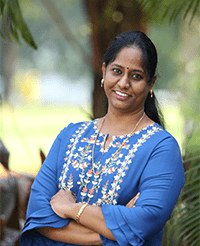Quest for Deeper Learning - My Reflection on the book ‘Teaching for Understanding- Tina Blythe & David Perkins
“It is the peculiarity of knowledge that those who really thirst for it always get it.” Richard Jefferies
With so much information everywhere, it looks like students will need to handle a lot of it. But, at the same time, they should also be good at really understanding certain things deeply. But what is deep understanding? Can schools really provide the learning environment to nurture and develop it?
Teaching for Understanding by Harvard Project Zero defines ‘understanding as the capacity for transfer, as well as the ability to restructure concepts rather than just add information.’ It is an agentive process, an on-going quest carried by the learner.
- Deep understanding involve a well-developed, rich base of knowledge that has relative complexity based upon developmental level.
- Deep understanding also involves understanding that is flexible and useful in solving real problems.
- Deep understanding is not often treated as an endpoint, but more often encourages continued growth and the desire to know more.
Learning is seldom done, finished or complete, but rather leads us in a new path.
Can we cultivate this kind of thinking in younger students?
Three Views About Understanding shared by Tina Blyth & David Perkins
Understanding in Action: A Performance View
• A shift from a content-based notion of understanding to a performance-based one.
• A focus on deeper understanding that enables better transfer and the ability to generate new understandings.
• A focus on Understanding Performances (such as explanation, exemplification, justification, etc.)
• A framework for instructional design that puts Understanding Goals at the center of the curriculum design process (backwards design).
Understanding as Recognizing Greater Complexity: A Restructuring View
How can we organize what we know – not just the facts, but how they fit together.
Understanding as an Agentive Process: A Living Curriculum View
A focus on…
• the agency of the learner.
• on developing adaptive expertise more than classical expertise.
• on curriculum that is dynamic, changeable, and responsive to what is relevant at that time.
• on real world, authentic learning.
• on self-regulated learning.
Author Name : Vinodhini
